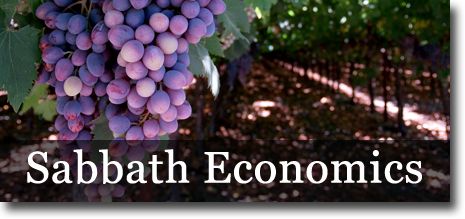
Focus Text: Matthew 20:1-16
When evening came, the owner of the vineyard said to his manager, ‘Call the laborers and give them their pay, beginning with the last and then going to the first.’ When those hired about five o’clock came, each of them received the usual daily wage. Now when the first came, they thought they would receive more; but each of them also received the usual daily wage.
Pastoral Reflection by Barbara Zelter, Former Program Associate, NC Council of Churches
In Jesus’ economics, the one represented here by the generous landowner, all workers received the pay they needed in order to survive, even if it seemed unfair to those who had worked all day. Sabbath economics is Jesus economics. As Ched Myers notes, Sabbath economics is about the grace of receiving what the Creator (employer) gives and the responsibility not to take more than is needed. Wide gaps between rich and poor are not part of God’s plan, and God’s people are called to be part of God’s generosity so that all have enough on which to live.
Key Fact
The wealth inequality in North Carolina is worse than the national numbers. In 2008, the richest 5% of North Carolina households earned 25.6 times more than the poorest 20%.
Click here to access this unit.

